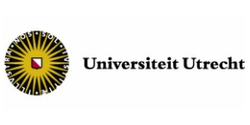Postdoc: Citizen Engagement in the Energy Transition
Updated: 21 Jan 2025
There is a clear and urgent need to empower individuals and give them more grip on how energy policies affect their lives. This research project addresses this challenge by giving people the opportunity to work together in cooperative arrangements. It will provide people with experiences of collective efficacy and responsibility that lead to engagement with the energy transition. The project examines to what extent these insights lend themselves for application in behaviour public policy and give (local) governments the means to involve underprivileged groups in the energy transition.
Your job
Recent research points to the critical role of collective action to address the energy transition and other societal challenges. However, right now collective action research has a focus on elite groups who are ahead of the crowd. This project addresses the question of how to engage large groups of people with the energy transition in formats that lend themselves for scaling up in behavioural public policy.
The project's overall objective is to increase citizen engagement with the energy transition by making a call on people’s aptitude for cooperation in novel behavioural public policy arrangements based on joint action principles. The empirical part of the project consists of three parts:
- Part 1 will address whether a joint action paradigm is effective in generating engagement with the energy transition in existing groups of people and examine to what extent this approach is appreciated by the target group.
- Part 2 will test the adoption potential of cooperative arrangements for the energy transition in a series of field experiments and examine to what extent this approach is feasible in public policy settings.
- Part 3 will examine the diffusion potential of these arrangements and draw a roadmap for dissemination.
Your tasks are:
- conducting the research (literature research, designing the studies, recruiting participants, pre-registering studies, collecting and analysing data, preparing and storing data packages for sharing);
- writing (inter)national scientific publications;
- giving presentations at (inter)national scientific conferences;
- actively engaging in outreach activities and disseminating findings to public policy professionals and the general public;
- active participation in the research team involved in this project.
This project is funded by NWA Innovative Projects within the Route Between Conflict and Cooperation. The team consists of Professor Denise de Ridder, Professor Lars Tummers, and Dr Madelijn Strick. The project is embedded in the Self-Regulation Lab at SHOP and it is closely connected with the multidisciplinary Behaviour & Institutions platform of the Institutions for Open Societies strategic research theme at Utrecht University.
Requirements:
We are looking for a postdoc with the following qualities:
- a PhD in (social) psychology of another relevant social science;
- experience with field experimental research and (advanced) statistical methods;
- ambition and skills to conduct excellent scientific research;
- good social and organisational skills;
- good communication skills (written and oral);
- proficiency in Dutch and English.
Salary Benefits:
We offer:
- a job for the duration of 12 months with prospect of extension for six months on good performance;
- a working week of 28 hours and a gross monthly salary between €3,378 and €5,331 in the case of full-time employment (salary scale 10 under the Collective Labour Agreement for Dutch Universities (CAO NU));
- 8% holiday pay and 8.3% year-end bonus;
- a pension scheme, partially paid parental leave and flexible terms of employment based on the CAO NU.
In addition to the terms of employment laid down in the CAO NU, Utrecht University has a number of schemes and facilities of its own for employees. This includes schemes facilitating professional development, leave schemes and schemes for sports and cultural activities, as well as discounts on software and other IT products. We also offer access to additional employee benefits through our Terms of Employment Options Model. In this way, we encourage our employees to continue to invest in their growth. For more information, please visit Working at Utrecht University.
28 - 32 hours per week
Heidelberglaan 1

